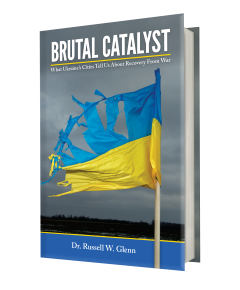Home > Open Access Journals > JSS > Vol. 5 > No. 4 (2012)
Author Biography
Mary Beth Altier is a Postdoctoral Fellow at the International Center for the Study of Terrorism at the Pennsylvania State University. She holds a Ph.D. in politics from Princeton University and researches political attitudes and political behavior in divided societies especially as they relate to national security and foreign policy. John G. Horgan is Director of the International Center for the Study of Terrorism at the Pennsylvania State University. He is Associate Editor of Dynamics of Asymmetric Conflict, and is a member of the editorial boards of journals including Terrorism and Political Violence, and Studies in Conflict and Terrorism. Dr. Horgan holds a Ph.D. in Applied Psychology from University College, Cork. Christian N. Thoroughgood is a doctoral candidate in the Industrial-Organizational Psychology program at Penn State University and is currently a graduate instructor and a research assistant in the university's International Center for the Study of Terrorism. Mr. Thoroughgood's current research interests include leadership, followership, gender, race, and intersectional identities in the workplace, counterproductive work behaviors, as well as dark personality traits (narcissism, Machiavellianism, psychopathy) in organizational settings.
DOI
http://dx.doi.org/10.5038/1944-0472.5.4.6
Subject Area Keywords
Armed groups, Terrorism / counterterrorism
Abstract
Despite the growth of terrorism literature in the aftermath of the 9/11 attacks, there remain several methodological challenges to studying certain aspects of terrorism. This is perhaps most evident in attempts to uncover the attitudes, motivations, and intentions of individuals engaged in violent extremism and how they are sometimes expressed in problematic behavior. Such challenges invariably stem from the fact that terrorists and the organizations to which they belong represent clandestine populations engaged in illegal activity. Unsurprisingly, these qualities make it difficult for the researcher to identify and locate willing subjects of study—let alone a representative sample. In this research note, we suggest the systematic analysis of terrorist autobiographies offers a promising means of investigating difficult-to-study areas of terrorism-related phenomena. Investigation of autobiographical accounts not only offers additional data points for the study of individual psychological issues, but also provides valuable perspectives on the internal structures, processes, and dynamics of terrorist organizations more broadly. Moreover, given most autobiographies cover critical events and personal experiences across the life course, they provide a unique lens into how terrorists perceive their world and insight into their decision-making processes. We support our advocacy of this approach by highlighting its methodological strengths and shortcomings.
Recommended Citation
Altier, Mary Beth; Horgan, John; and Thoroughgood, Christian. "In Their Own Words? Methodological Considerations in the Analysis of Terrorist Autobiographies." Journal of Strategic Security 5, no. 4 (2012)
: 85-98.
DOI:
http://dx.doi.org/10.5038/1944-0472.5.4.6
Available at: https://digitalcommons.usf.edu/jss/vol5/iss4/11


